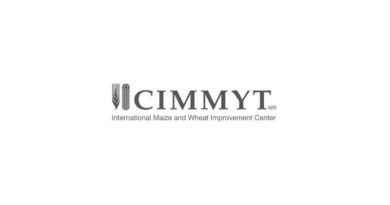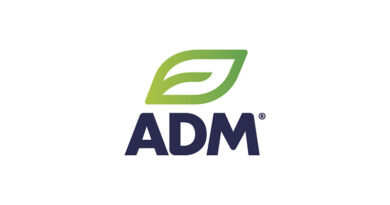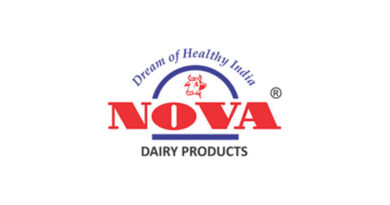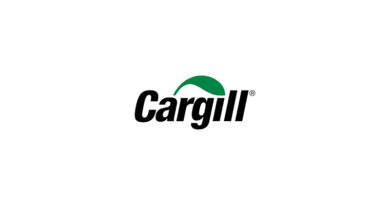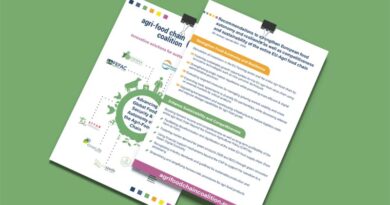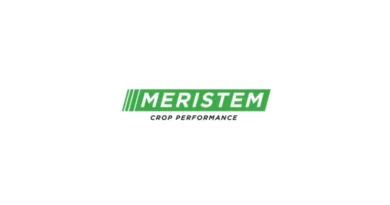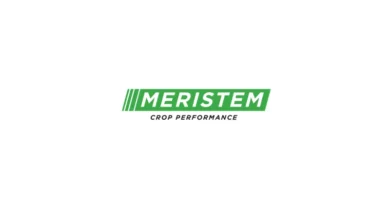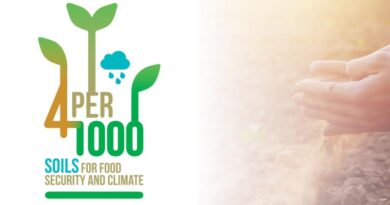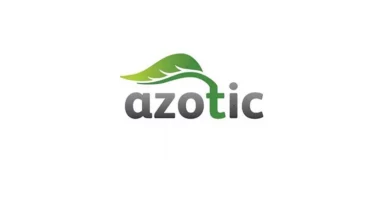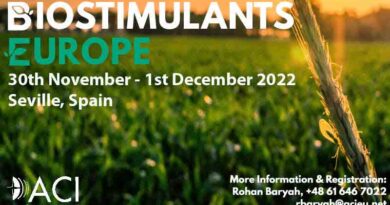The Importance of Texture Improvers: One Bite is All it Takes!
03 October 2023, US: Advanced ICL food texturizing products are improving the quality of food products, strengthening the food supply chain, and enhancing the gastronomical experience for millions of consumers around the world.
Adequate nutrition is a basic necessity to maintain life, but good food is one of the great pleasures in life. We spend an estimated $11 billion on food every year and the figure is rising. The highly competitive global food industry faces a constant battle to meet both consumer demand and expectations while delivering sustainable food security solutions and maintaining profitability across the entire supply and production chain.
Consumers make food choices according to all kinds of criteria, including calorific content and fat levels, whether the food product is organic and ethically sourced, how it is packaged and presented, and how much it costs. That’s before we even get into the subtleties of marketing, branding, and advertising.
There is however a bottom line with food shopping; as long as consumers have choices, most will not willingly buy unappetizing food. A key aspect of food formulation is its texture. Eating is a complex sensory experience that goes far beyond taste. If the texture of a food is unappealing people are immediately reluctant to eat it. This is especially the case with young children.
ICL’s food tech innovation is the key to producing the kind of appetizing foods that generate brand loyalty and repeat sales, as well as to feeding our growing global population – currently just over 8 billion people. This article will explore the importance of food texturizing solutions, and ICL’s vital contribution to the search for healthy, sustainable, and affordable food formulation solutions.
The Importance of Effective Food Texturizing Solutions
Our ancestors understood the importance of food texturizing solutions. They went into considerable trouble transforming the textures of raw ingredients like meat and root vegetables. Some of the earliest known recipes demanded sophisticated preparation and cooking techniques to create palatable and pleasing food textures. Fat was commonly used to moisten and soften food, as well as to add flavor.
Today we have a much greater range of processes and ingredients for achieving appetizing food textures. These include textured solutions for plant-based foods and alternative proteins, as well as solutions for meat, fish, dairy products, and other processed foods and ready meals. With so many advanced food formulation options available, as well as an increasingly sophisticated and discerning consumer base, it’s vital to choose the right ingredients.
It’s also important to address the challenges – and opportunities – of food texture at an early stage in the product development cycle. Research scientists understand that the texture of food is as important as its smell, taste, and appearance. If the texture of a new food product is unappealing, or the desired texture rapidly degrades, the product development cycle will be severely disrupted.
ICL is one of the world’s leading food phosphate suppliers. The group is pioneering the manufacture of advanced food additives and solutions that can safely prolong food shelf life and reduce waste at the retail and consumer end of the supply chain.
The issue of food texture is a major area of focus for ICL scientists. In addition to optimizing traditional food foodstuffs, the company’s research and development into new and sustainable food texturizing products is opening the door to a new generation of plant-based foods and alternative proteins.
Food Formulation – The Proof is in the Pudding
As the global food retail industry evolves to take advantage of the latest food tech trends, there are major financial rewards for food texturizer manufacturers that can deliver affordable and healthy solutions to food producers. It’s worth taking a moment to define the meaning of texture within the context of the culinary experience. A useful definition is one that recognizes the function of texture as a sensory property:
“Texture is the sensory and functional manifestation of the structural, mechanical, and surface properties of foods detected through the senses of vision, hearing, touch, and kinesthetics.”
Personal food preferences are poorly understood and attempts to explain them often result in pseudoscientific theories that should be taken with a large pinch of salt. No doubt some of our reactions to food are the result of cultural conditioning, but it seems likely that there is a deeper evolutionary role in our sensory perception of texture, which may have developed as a protective mechanism against the consumption of rotten or unhealthy food.
What’s clear is that our reaction to food, especially to new food products, is a broad response that includes all our active senses. The presentation of food; its color, odor, and flavor are relatively easy to adapt to meet broad consumer preferences. The acid test of any food product is in the consumer’s reaction to the physical sensations that accompany the first mouthful.
Scientists developing food texturizing products need to consider key factors like the mouthfeel, stability, and structure of any food product. The mouth is an incredibly sensitive set of biological apparatus that reacts and responds minutely to the tactile sensations of food and drink. The texture of foodstuffs can provoke immediate responses that range from pleasure to revulsion.
When we consider the importance of texturizing solutions in food formulation, we need to think of the human mouth as a sensory organ in its own right. Any food texturizer manufacturer that understands this insight – and has the R&D resources and scientific expertise to exploit it – already has a valuable competitive edge. The ability to produce appetizing foods that are convincingly and apparently naturally crunchy, creamy, chewy, (or that simply dissolve in the consumer’s mouth) goes a long way to guaranteeing brand loyalty and repeat purchases.
ICL Group: Applying Decades of Expertise to Texture Improvers
The ICL Food Specialties business brings over 75 years of experience and is a major innovator in the global food industry.
Its influence begins at the field level with advanced sustainable fertilizers and AI agtech solutions for farmers and agronomists. ICL is highly committed to the concept of sustainability in agriculture and to the implementation of the United Nations Strategic Development Goals (SDGs). The company’s separate divisions have important contributions to make across all 19 SDGs, but the 2nd SDG of Zero Hunger is particularly relevant to its role as a food texturizers manufacturer.
One reason why ICL is a leader in the field of food texturizers is its special expertise in the use of advanced phosphates. ICL scientists and researchers have the knowledge and skills to finely adapt phosphates for every major food group, as well as specific products within food groups. ICL research and development is now heavily focused on finding textured solutions for plant-based foods that are rapidly becoming a highly popular and profitable market niche.
Food Groups where ICL Provides Healthy Food Formulation Additives
- Meat Poultry and Seafood (MPS)
- Dairy
- Bakery
- Beverages
- Vegetarian, Vegan, and Niche Dietary Requirements
The science behind tailor-made food texturizing products is complex and every food group brings its own unique challenges. Scientists have to develop sustainable solutions that are healthy and meet the official food regulatory standards for each market. The approved texturizing solutions also need to be cost-effective – and must deliver the kind of final food texture that pleases a majority of consumers.
Understanding the Complexity of Texturizing Solutions in Food Formulation
A processed meat product like a sausage may need to be hydrated and treated to promote the cohesion of the natural proteins for it to be genuinely succulent and appetizing. Scientists also need to consider issues like emulsification, cryoprotection, and cure acceleration when they work on food formulation for any meat product that requires an extended shelf life. Even a requirement as basic as whether a sausage or ham is easy to slice will directly affect the consumer experience.
Even with the recent popularity of dairy substitutes such as soy and almond milk, the global market for milk-based foods like cheese, butter, and yogurt remains massive. Dairy products – whose formulation often depends on controlled reactions between constituent fats and proteins – require advanced texturizing solutions. These include using phosphate blends to stimulate adequate hydration and ensure the optimal functionality of casein micelles.
As with meat products, effective emulsification and water binding is vital. Dairy products like cheese and butter require a controlled melt, absolutely smooth mouthfeel, and the natural creaminess that has made them so popular for thousands of years. In a market that demands low-fat and low-calorie dairy products, the ingenuity and creativity of food scientists are pushed to the limit.
The ICL group has decades of experience in the food tech industry, as well as access to environmentally friendly sources of high-grade phosphates (and the ability to process them). ICL is one of the world’s most innovative food texturizers manufacturers, not least because of its groundbreaking efficiency in maintaining its own supply chains, sustainable production processes, and localized circular economies.
ICL: Bringing Together Culinary and Food Tech Experts
The food industry is almost unique in the sense that food is a central and intrinsic part of every human culture. Very few industries impact on the fundamentals of human existence in the same way as the food industry. Businesses that compromise on the basics of culinary art do so at their peril. ICL is committed to enhancing the food experience for all and enabling the creation of unique and desirable food products.
Active and ongoing collaboration between ICL scientists and food manufacturers is leading to exciting breakthroughs, particularly in the development of textured solutions for plant-based foods and alternative proteins.
The group currently has some of the corporate world’s finest R&D facilities at Rehovot in Israel, as well as its own networks of agtech and food tech startups and like-minded companies around the world. There is a huge potential for scientific collaboration and cooperation that will create innovative advances in finding sustainable texturizing solutions in food formulation.
Working to Feed the World
The future of the human race depends on the global food industry (and the agtech that drives food production). ICL is making valuable contributions on multiple levels to the wider goal of Zero Hunger and comprehensive food security. The group is also focusing on improving the culinary experience. It isn’t enough to simply deliver an abundant supply of affordable food staples – ICL believes that eating should be a pleasure for everyone.
ICL scientists are prioritizing food texture at an early stage of the production process. The goal is to create healthy, appetizing, and affordable foods with an optimal shelf life and to produce, package, and distribute them within a net zero-carbon framework. ICL technology is opening the door to a bountiful and sustainable future where everybody on the planet has easy access to gourmet quality food.
(For Latest Agriculture News & Updates, follow Krishak Jagat on Google News)



